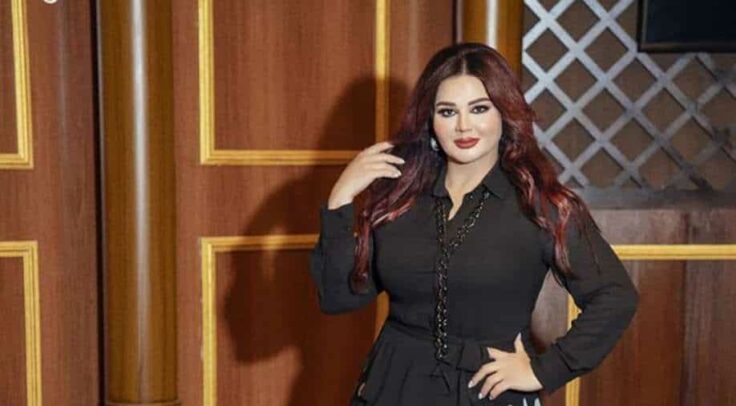Iraqi actress and talk show host Enas Taleb has recently confirmed her decision to sue British periodical The Economist following a story centered around the issue of weight in the Arab World.
On July 28, the weekly newspaper ran a story probing the links between gender and obesity in the region. In the report, titled Why women are fatter than men in the Arab world, the study found that poverty, coupled with societal restrictions, make up the main reasons why women in the Middle East are “heavier” than their male counterparts and hence why “curvy women” are perceived as more attractive.
The Economist eventually went on to pick an image of Taleb, without her consent, performing at Iraq’s annual cultural festival, to illustrate the article, using her likeness as the poster girl of obesity in the MENA region.
In response to the poor editorial choice that felt more like a personal attack, Taleb went on to speak with New Lines Magazine to shed some more light on her decades-spanning career as well as address the ongoing controversy surrounding her image and persona. In the interview, the actress claimed she “decided to take legal action against The Economist for their cover story,” while also demanding “compensation for the emotional, mental, and social damage.”
Distraught and confused, Taleb still insisted on reaffirming how “healthy and happy” she feels about herself while also claiming to be “disappointed to see an international outlet describe me as if all my accomplishments meant nothing.”
Active since the mid-1990s, the veteran actress made her first steps in the industry at the age of 16 before enjoying a two-decade-long journey in the world of entertainment and culture. In that span of time, Taleb grew into becoming an unmissable figure on small screens always appearing across different formats and platforms stretching from ads to music videos, TV series, and more.
Praised and esteemed all throughout her native Iraq, The Economist’s last release definitely came across as inappropriate, rude, and out of line. In fact, some readers went even further claiming that the whole story in itself was misogynistic and orientalist given the derogative stance the publication takes as well as the publication’s previous scandals pertaining to the region.
This is a shameful headline @TheEconomist and the article is pretty damn bad too. Sexist misogynistic orientalist. https://t.co/vFrdOmgoB3
— Kim Ghattas (@KimGhattas) August 5, 2022
A few weeks ago already, the British outlet made headlines for cartoons that were rapidly labeled as racist, disrespectful, and utterly stereotypical. For instance, in their issue focusing on Saudi crown prince Mohammed Bin Salman, illustrations included the back of a man, wearing a traditional thobe and headscarf, with the cord shaped to look like a fuse, another one of a man shaped as a bullet, and an eye with an eyebrow made to look like a sword amongst other out of line sketches.









